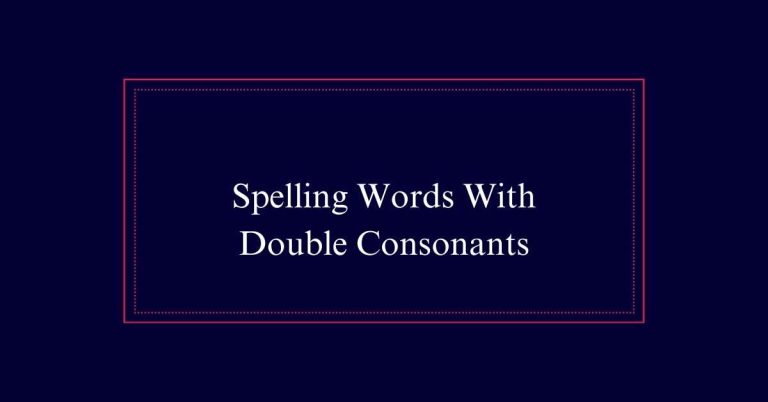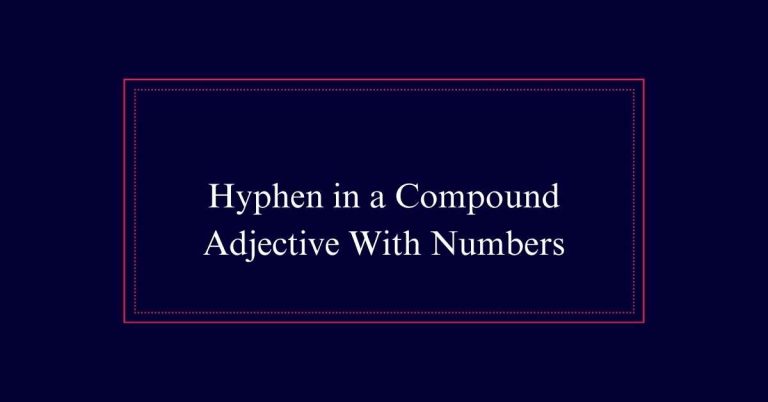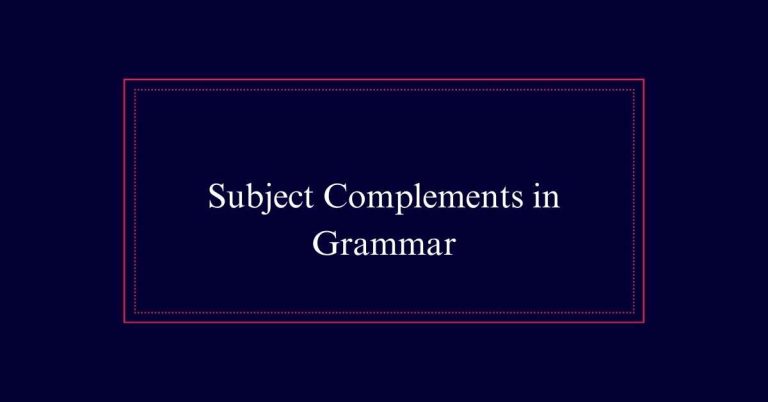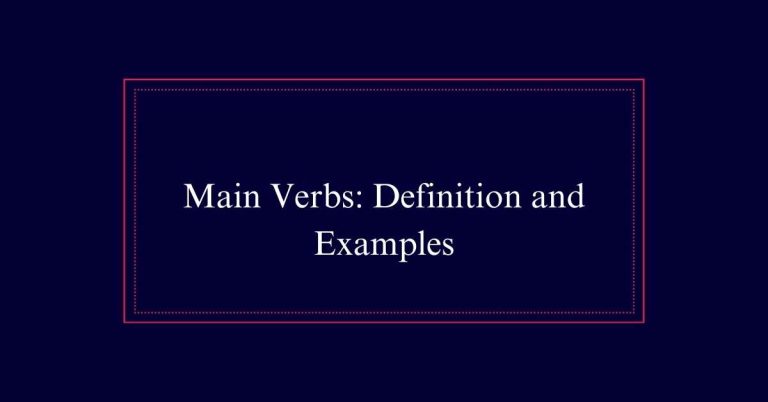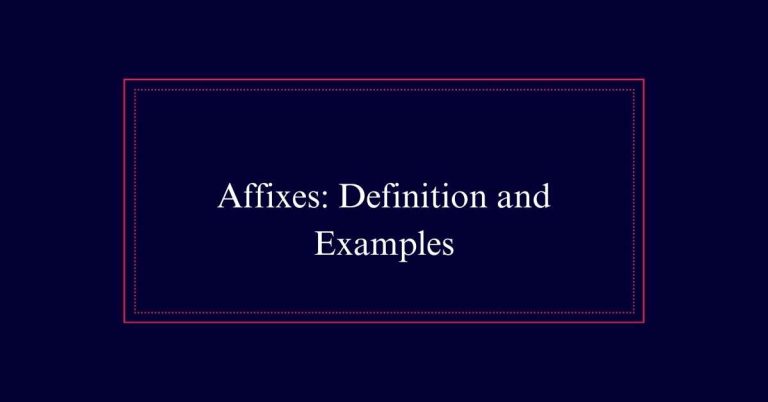Mass (Uncountable) Noun
A mass (uncountable) noun represents substances, quantities, or concepts that cannot be counted individually. Examples include tangible items like water and sand, as well as abstract ideas such as love and wisdom. Mass nouns are always used in the singular form and take singular verbs. They do not use indefinite articles like “a” or “an.” These nouns simplify communication by grouping broad ideas or materials into single terms, making it easier to discuss complex subjects.
Understanding Mass Nouns
Understanding mass nouns begins with recognizing that they represent quantities or substances that are not easily countable. They often refer to things like air, rice, and intelligence.
These nouns describe both tangible items, such as snow and sand, and abstract concepts, such as information and advice. Mass nouns are always used in the singular form and require singular verbs for subject-verb agreement.
They do not use numbers directly; instead, quantities are specified with words like ‘pieces’ or ‘types.’ Additionally, mass nouns avoid using indefinite articles like ‘a’ or ‘an.’ Instead, the definite article ‘the’ is appropriate.
Examples of Mass Nouns
To illustrate the concept of mass nouns, consider examples from various categories:
Emotions like anger, happiness, and sadness are mass nouns because they cannot be counted individually.
Languages such as English, Spanish, and Vietnamese also fall under this category; you can learn a language, but you cannot count ‘one English’ or ‘two Spanish.’
Measurements like length, height, and width are further examples. These terms represent quantities that are measured rather than counted.
Abstract Concepts
Abstract concepts encompass ideas and phenomena that cannot be touched or counted, such as love, freedom, and wisdom. These concepts are inherently intangible and exist more as ideas or experiences. Because they cannot be physically measured or separated into distinct units, they are classified as mass nouns.
For instance, ‘knowledge’ represents a vast, undefinable quantity of information. You cannot count ‘knowledge’ but you can discuss it in general terms. Similarly, ‘happiness’ cannot be divided into individual units.
These abstract mass nouns require singular verb forms and do not use indefinite articles. Instead of saying ‘a happiness,’ we say ‘happiness’ or ‘the happiness.’
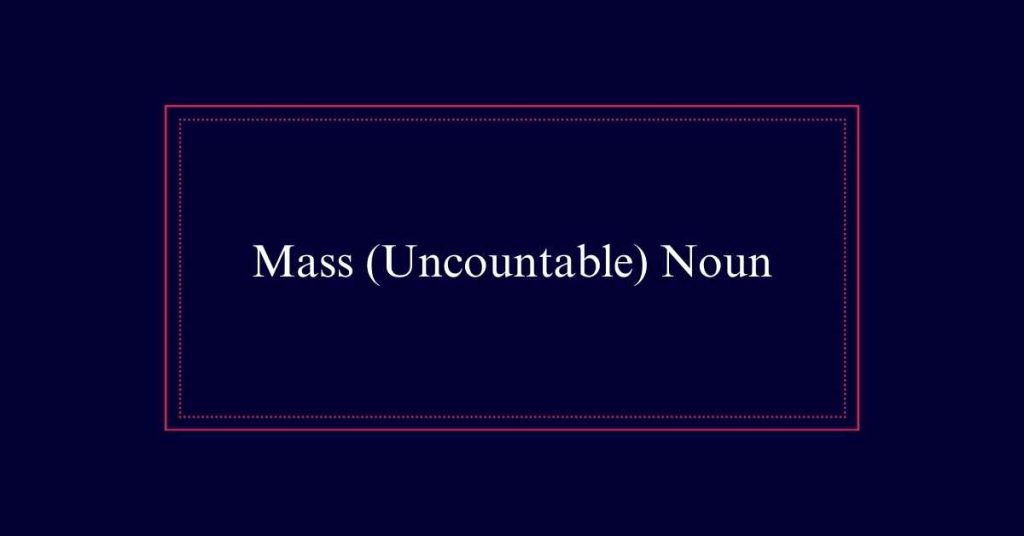
Physical Objects
Physical objects classified as mass nouns are typically materials or substances that cannot be easily separated into individual units. These nouns refer to items that we perceive as singular masses rather than distinct, countable entities.
Common examples include:
- Water: Essential for life, representing purity and sustenance.
- Sand: Reminiscent of endless beaches and deserts, evoking a sense of vastness.
- Wood: Symbolizing warmth and nature, integral to construction and art.
- Snow: Conjures images of winter wonderlands and peaceful silence.
General Sciences and Sports
General sciences and sports often utilize mass nouns to describe broad fields of study and activities. Terms like ‘biology,’ ‘chemistry,’ and ‘physics’ are mass nouns because they refer to entire disciplines, not individual elements within them.
Similarly, in sports, words such as ‘football,’ ‘basketball,’ and ‘tennis’ refer to the overall category rather than specific instances or items. These terms are general and encompass a wide range of related activities or concepts.
Mass nouns in these contexts help simplify communication by grouping broad, interconnected ideas into a single term. This makes it easier to discuss complex subjects without delving into specifics, providing a clear and concise way to communicate about entire fields or types of activities.
Using Mass Nouns in Sentences
Understanding how to use mass nouns in sentences is essential for clear and accurate communication. Mass nouns, always in singular form, require specific handling to avoid confusion. They do not take plural forms or numbers directly.
Instead, use quantifiers like ‘some’ or ‘much.’ Avoid indefinite articles such as ‘a’ or ‘an.’ Instead, use ‘the’ if needed.
Consider the following guidelines:
- Avoid pluralization: ‘Rice is delicious,’ not ‘Rices are delicious.’
- Use quantifiers: ‘Some information’ instead of ‘an information.’
- No indefinite articles: ‘The advice was helpful’ not ‘an advice.’
- Specify amounts: ‘A piece of furniture’ rather than ‘a furniture.’
Singular Form Usage
Using mass nouns in the singular form is essential for grammatical accuracy. Mass nouns, unlike count nouns, do not have plural forms. They refer to substances or concepts that are not easily counted. Hence, they always require singular verb forms for subject-verb agreement. For instance, ‘The information is vital’ is correct, while ‘The information are vital’ is incorrect.
Here is a quick reference table for singular form usage with some common mass nouns:
| Mass Noun | Correct Usage |
|---|---|
| Information | The information is valuable. |
| Water | The water is cold. |
| Advice | Her advice is helpful. |
| Sand | The sand is hot. |
| Music | The music is soothing. |
Avoiding Numbers
In addition to always using the singular form, avoid pairing mass nouns with numbers for accurate usage.
Mass nouns represent quantities that cannot easily be counted. As a result, using numbers with them leads to incorrect grammar and confusion.
Instead of numbers, use specific words to quantify mass nouns. These words can evoke clear images and emotions, helping the reader understand the quantity being described. Consider the following:
- ‘pieces of advice’ instead of ‘two advices’
- ‘grains of rice’ instead of ‘five rices’
- ‘liters of water’ instead of ‘three waters’
- ‘bags of sand’ instead of ‘four sands’
Indefinite Articles
Mass nouns should never be paired with indefinite articles like ‘a’ or ‘an’ because they represent uncountable quantities. Using ‘a’ or ‘an’ implies that the noun can be counted, which contradicts the nature of mass nouns.
For example, it is incorrect to say ‘a rice’ or ‘an information.’ Instead, we use phrases like ‘some rice’ or ‘a piece of information’ to denote quantities. The definite article ‘the’ is appropriate when referring to a specific instance of the mass noun, such as ‘the water in the bottle.’
This distinction helps maintain grammatical accuracy and clarity in communication. When in doubt, rephrase the sentence to avoid indefinite articles with mass nouns.
Mass Vs. Count Nouns
Understanding the difference between mass nouns and count nouns is key to mastering their correct usage in sentences. Mass nouns, also known as uncountable nouns, refer to substances or concepts that cannot be counted individually, such as ‘water,’ ‘information,’ or ‘advice.’ They always use singular verbs and do not have plural forms.
In contrast, count nouns refer to items that can be counted, like ‘apple,’ ‘car,’ or ‘idea.’ Consider the following distinctions:
- Mass nouns evoke a sense of infinity and continuity.
- Count nouns bring a sense of specificity and quantity.

